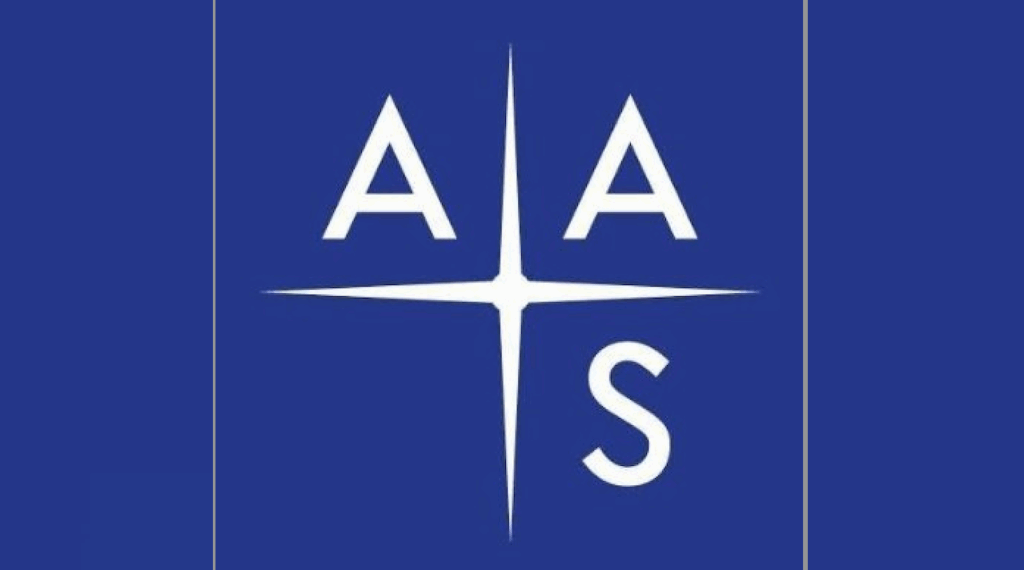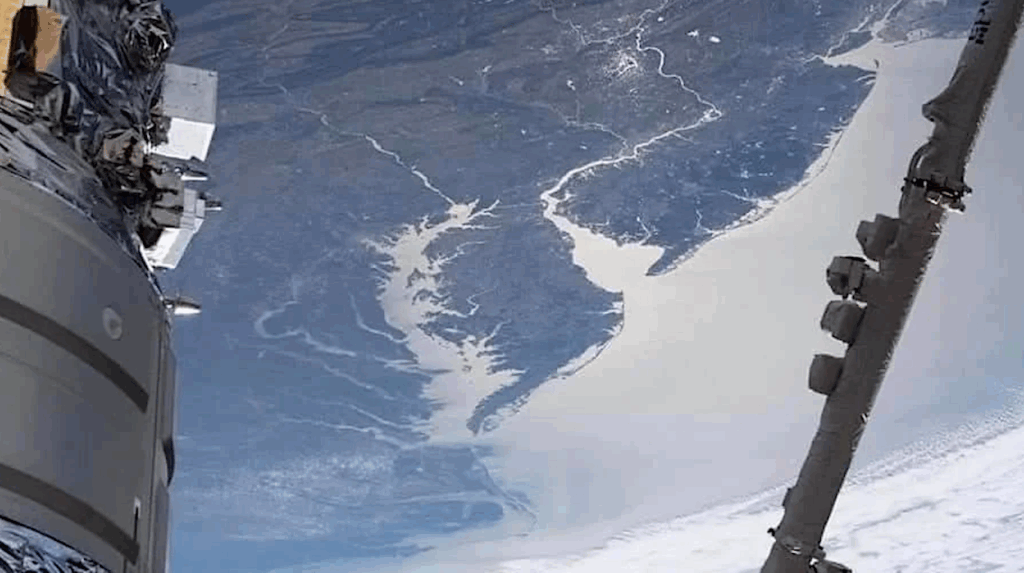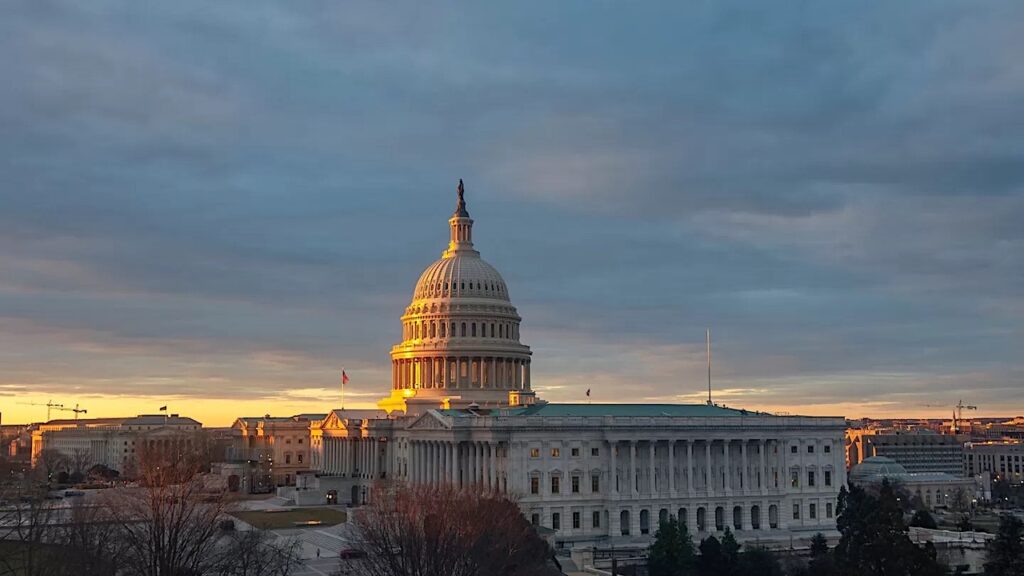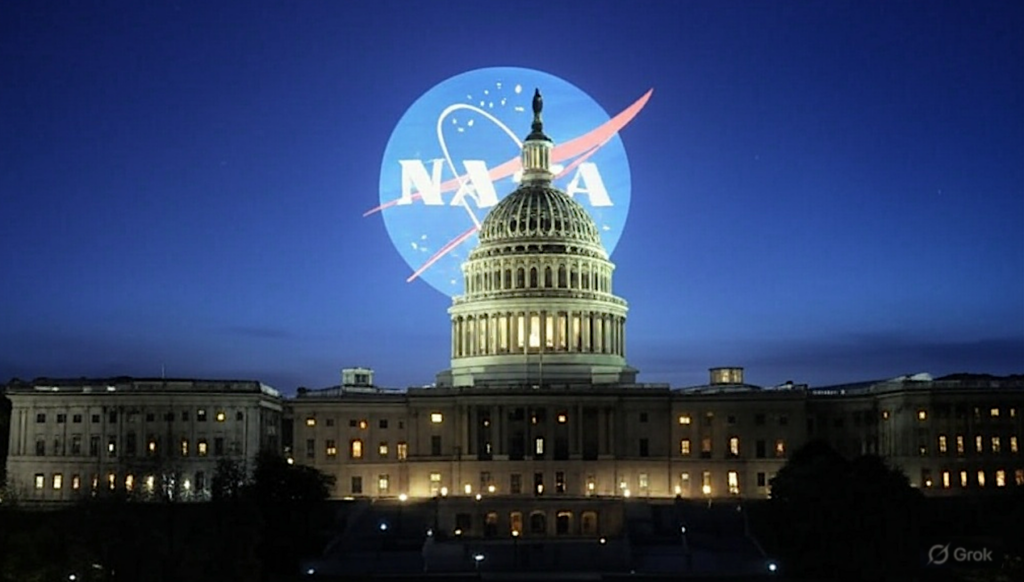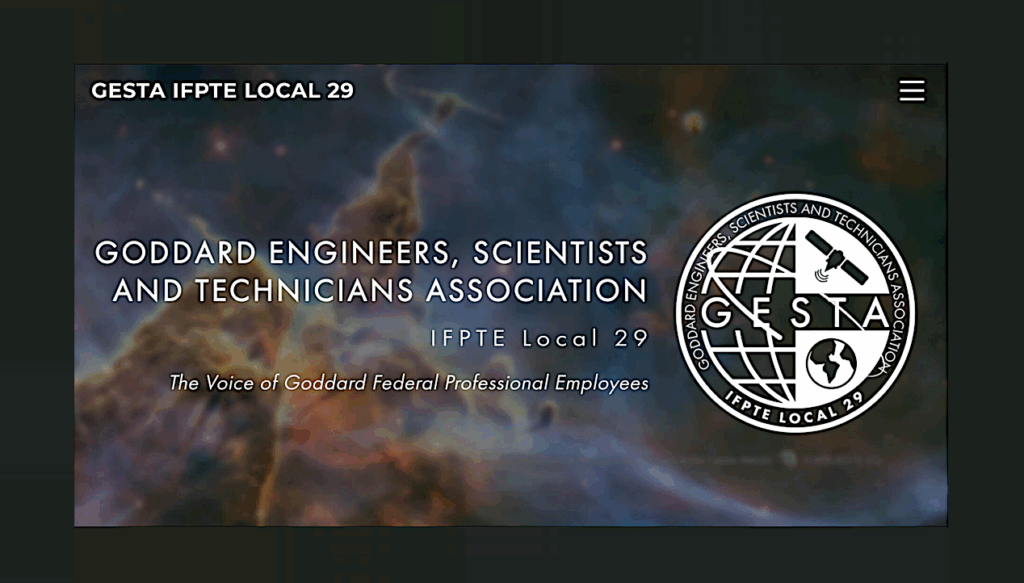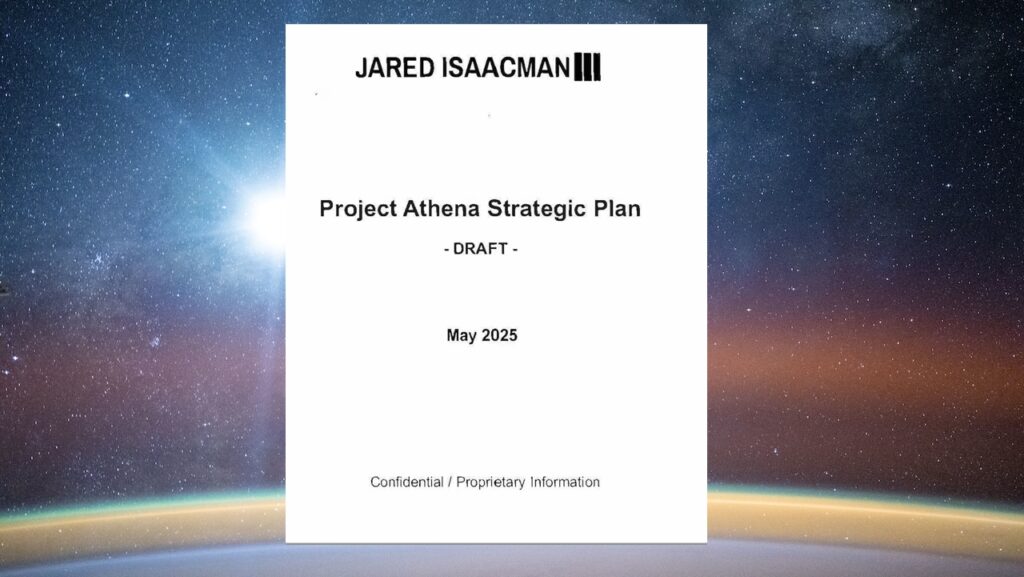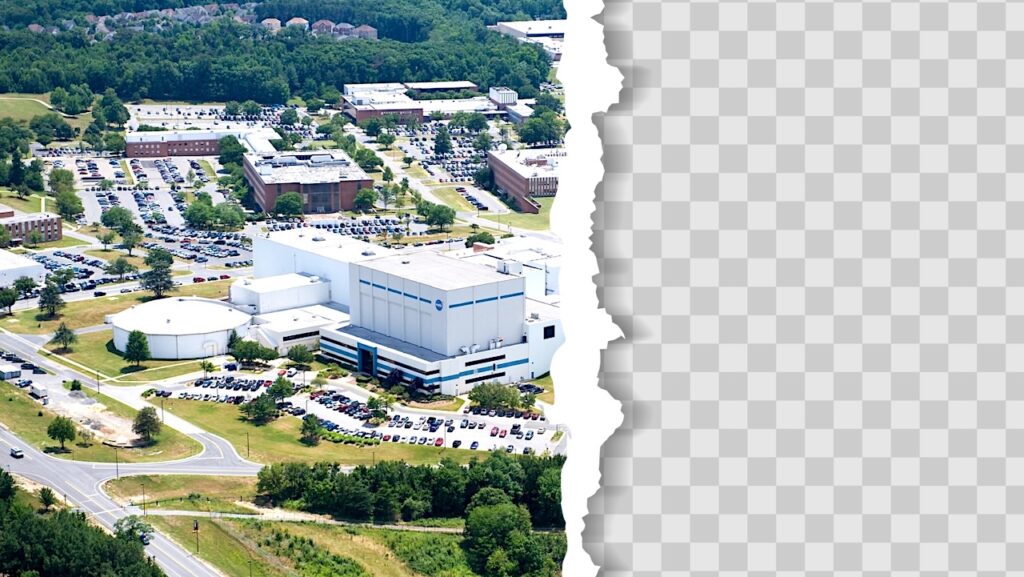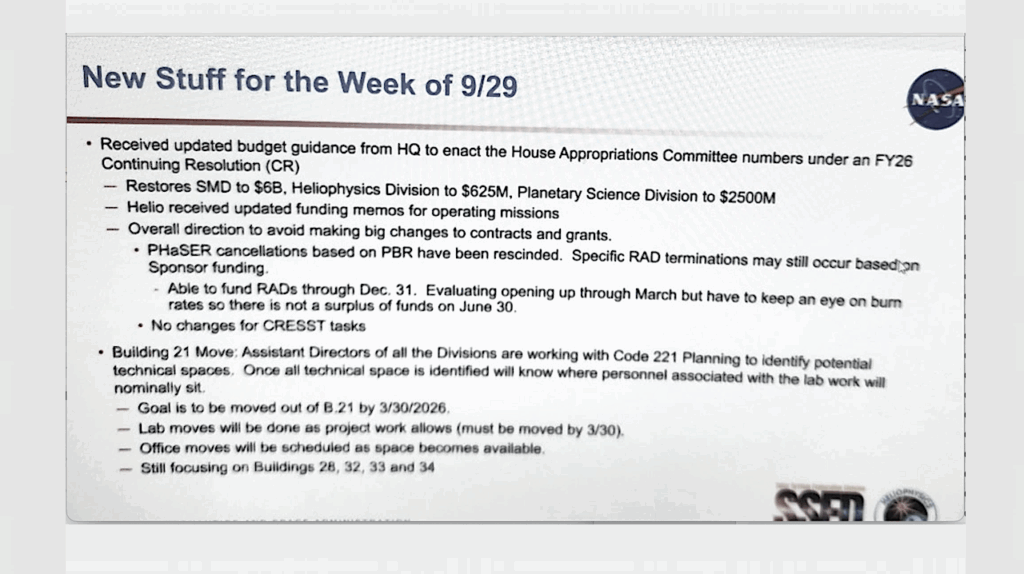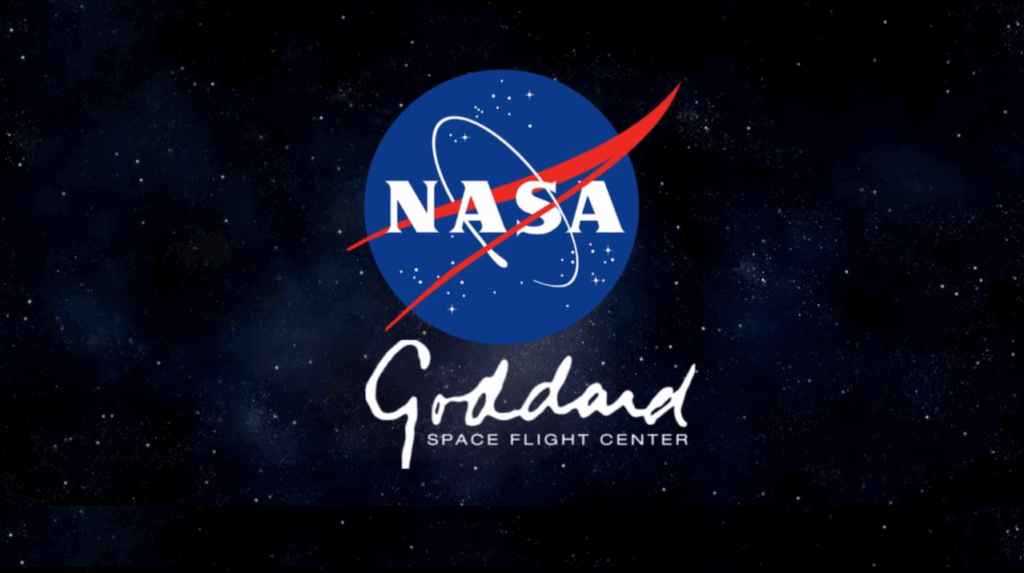Keith’s note: this is an excerpted version of a statement by Sen. Van Hollen (D-MD) on the Senate Passage of Commerce, Justice, Science, & Related Agencies FY 2026 Appropriations Bill – Legislation includes provisions on FBI Headquarters, NASA Goddard, NOAA; rejects Trump Administration cuts to critical programs: Key Bill Points & Highlights: [Note NASA, NSF, NIST, NOAA excerpts] (more below)
(more…)Keith’s note: According to a press release “U.S. Science Leadership Survives Existential Threat From Trump Budget as Cantwell Rallies Colleagues to Reject Gutting NASA, NSF, & NIST“ from Senator Maria Cantwell: “America’s leading science agencies have survived an existential threat thanks to bipartisan rejection of massive budget cuts proposed by the Trump Administration, U.S. Senator Maria Cantwell (D-WA), ranking member of the Senate Committee on Commerce, Science, and Transportation, and senior member of the Finance Committee, announced today.” (Full text below)
(more…)Keith’s note: according to a press release “Planetary Science Caucus Co-Chairs Statement on House Passage of FY26 Full-Year Funding for Space, Science, and Exploration”: “the U.S. House of Representatives voted 397-28 to pass H.R. 6938, the Commerce, Justice, Science; Energy and Water Development; and Interior and Environment Appropriations Act, 2026. Rep Judy Chu (CA-28) and Rep. Don Bacon (NE-02), who both co-Chair the bipartisan Congressional Planetary Science Caucus, released the following joint statement: (more below)
(more…)Keith’s note: here’s your expert summary from Marcia Smith at Space Policy Online: “The House and Senate Appropriations Committees released the text of their joint conference agreement on the FY2026 Commerce-Justice-Science (CJS) bill today with a wholesale rejection of the dire cuts to NASA proposed by the Trump Administration. The committees had individually indicated they would not accept Trump’s 24.3 percent cut and the joint agreement calls for only a comparatively small reduction of $400 million from NASA’s $24.8 billion FY2025 budget. It’s still a cut, though, and inflation will reduce the buying power of that money, but if enacted the outcome is a vast improvement over what the agency was facing a few months ago.” More at “Great News for NASA in the House-Senate FY2026 Appropriations Report“.
(more…)Keith’s note: this is an except from the GESTA IFPTE Local 29 blog Building Closure Updates 27 Dec 2025 – it is important to note that this library also includes the contents of the NASA HQ library which was closed and removed to make a visitor’s center. More below
(more…)Keith’s note: [Preface: I was going to post something about the GSFC Library closure next week. I just came across this on Twitter – posted earlier today. NASA PAO no longer wants to send me things so I may be behind posting things from now on.] That said, here are two tweets from Jared Isaacman on the matter. This issue arose weeks ago. A preemptive post like these tweets at that time would have stopped news stories and lurid headlines in their tracks – or at least dampened them. Pro tip to NASA PAO: get out ahead of your controversies. Don’t just wait until they fester online and start to grow and then find yourself doing a diving catch during the holidays when things start to heat up. Tweets below:
(more…)Keith’s note: A few weeks ago the existence of a “Project Athena” document prepared by NASA Administrator nominee Jared Isaacman and a few close advisors emerged. It had been written during his first nomination period as a shopping list, statement of purpose, first stab at a plan that he was working on for NASA. Then his nomination was pulled. Then it was reinstated. Now it will most likely stick. In the months between this report’s writing and today, much has happened that will nullify, modify, and/or accentuate most aspects of what was written. After its existence became known Isaacman wrote a summary of this summary to clarify a few things. But the actual document remained elusive until it started popping up on various social media accounts on Friday. I have excerpted two main features – the “Workforce Speech – Day 1 Speech”, and “Executive Summary”. You can download the PDF version of the full 62 page document that is circulating here on Google Drive or look at various Twitter and social media accounts for screen grabs and other links. BTW the cover says “Confidential/ Proprietary Information” – well that is moot now – but it was leaked from within a very very very small group of people at NASA who had copies. People leak things for their own purposes. This is a work in progress, subject to wholesale revision and even deletion, so caveat emptor, your mileage may vary, and ad astra y’all. Excerpts below.
(more…)Keith’s note: According to @NASAEarthWatch @nasaearthwatch.bsky.social “Goddard Space Center library is due to disappear. It is not about when, but how and where the books will go. Another casualty in this relentless attack to #science and culture. It has a Facebook page. Let’s see how long it lasts.”
(more…)Keith’s note: A press release from Representatives Chu, Bacon et al urges “Strong Final FY26 Appropriations for Space Science and Exploration.” Full text and letter below.
(more…)Keith’s note: the following letter was sent by the Maryland Congressional delegation to Acting NASA Administrator Duffy on 13 November 2025 with regard to a variety of issues raised about actions being taken at NASA Goddard. Answers requested by 17 November 2025. Full letter below.
(more…)Keith’s note: This was sent out to NASA employees by Stephen Shinn Acting NASA Chief Financial Officer: “A funding lapse will result in certain government activities ceasing due to a lack of appropriated funding. In addition, designated pre-notified employees of this agency would be temporarily furloughed. P.L. 116-1 would apply.” Full memo below
(more…)Keith’s note: The following internal chart from NASA Goddard details some good news about diving catch efforts WRT budgets and cancellations to keep some things alive. Whether this actually comes to fruition or if OMB efforts negate the impact – remains to be seen. But good news is better than bad news. Chart text below.
(more…)Keith’s note: In a joint 670/690 Helio/Planetary division meeting today with over 230 attendees Deputy Director Gina Dibraccio said that GSFC has been instructed by management to hold back on meetings with staff so the information does not end up on NASAWatch and elsewhere. When asked who told her that she responded “I am not going to answer that”. She also said “there will be no re-org” at GSFC. Staff were directed to join in an on-site meeting tomorrow (Wed) at 11:00 am EDT even if there is a shutdown to give guidance on the shutdown.
(more…)Keith’s note: the following report was issued today: “The Destruction of NASA’s Mission” Whistleblowers reveal OMB’s Unconstitutional Plot to Gut the Agency – U.S. Senate Committee on Commerce, Science, and Transportation Maria Cantwell, Ranking Member Full report . — Excerpt below.
(more…)Keith’s note: snapshots of where things lie. It is dynamic and will change three times before lunch time today.
- “Trump’s shutdown plans: Mass layoffs, deregulation, military deployments“, Washington Post: “If Congress fails to fund the government next week, the White House is preparing for a shutdown that would reflect the purest version of President Donald Trump’s vision for the federal government, guided by White House budget director Russell Vought, an architect of the controversial Project 2025 playbook for Trump’s second term.”
- “Federal workers brace for potential government shutdown, mass layoff“, CNN: “This employee said that as of Thursday afternoon, they had not received any information from agency leadership acknowledging the possible shutdown. Another source said there similarly hasn’t been any agency-wide guidance circulated within the National Oceanic and Atmospheric Administration, or NOAA, which saw mass DOGE firings followed by hundreds of re-hirings. “We are hearing very little from leadership,” the NOAA source said. And regarding potential layoffs, “we are keeping an anxious ear to the ground.”
Keith’s note: JPLers got this email this morning from JPL Human Resources about the “Phase Two reorganization and upcoming layoff in October”. People are being warned that as many as 4,000 of the 5,500 JPL employees could be gone by 15 October 2025 and that there will be a mandatory return to the office for teleworkers who are still employed by 31 October 2025. Full note below.
(more…)Keith’s note: According to Politico (and other sources as well): “White House tells agencies to prepare for mass layoffs if government shuts down”: “In the memo, OMB told agencies to identify programs, projects and activities where discretionary funding will lapse on Oct. 1 and no alternative funding source is available. For those areas, OMB directed agencies to begin drafting RIF plans that would go beyond standard furloughs, permanently eliminating jobs in programs not consistent with President Donald Trump’s priorities in the event of a shutdown.“ These are the contingency layoff, shutdown, and cancellation plans NASA HQ is ready to implement. They haven’t told you about this, have they? They use clever code words to deny that anything bad is in store. Now this memo is out. Will NASA comment on what might begin to happen at midnight 30 Sep/1 Oct? Or will things just happen with an email? Ask your management to ask their management. The internal memo can be found below.
(more…)Keith’s note: Yesterday OMB director Russell Vought and OSTP Director Michael Kratsios issued a memo titled “Fiscal Year (FY) 2027 Administration Research and Development Budget Priorities and Cross-Cutting Actions“ to show what the Adminstration’s top five to-do tech things are. The shortest was “Number 5. Assure America’s Continued Space Dominance”. The words “science” and “education” appear nowhere in the space paragraph but “civilian and defense mission needs” appear in the first sentence. We also see the terms “Golden Age of American Innovation” and “Gold Standard Science” which, by virtue of being capitalized, represent the formal names of things that no one has actually defined. But wait: there is a quote at the top of the memo that says “We are going to conquer the vast frontiers of science, and we are going to lead humanity into space and plant the American flag on the planet Mars and even far beyond. And, through it all, we are going to rediscover the unstoppable power of the American spirit, and we are going to renew unlimited promise ofthe American dream. ” – President Donald J. Trump, 2025 Address to Joint Session of Congress”. So, you have your marching orders – and a shrinking budget and gutted workforce with which to carry them out.
(more…)Keith’s note: OK so there is no legislation to extend spending until 21 November. Congress is leaving town and will only be back on 30 September – 1 October when it is probably too late to prevent a shutdown. The Presidential Budget Request (PBR) for FY 2026 kicks in and all the scary things that White House and OMB wanted to do to NASA missions and personnel will happen. Of course things could pivot in a new chaotic direction in an hour. So plan accordingly. Update: There is some chatter that the House Appropriations Bill as it frames a NASA budget (which is bad but less bad than PBR by comparison) is what Sean Duffy will be following until there is some clarity on a real budget. BUT this guidance is trickling down inefficiently and those people whose programs and missions – and employment – are nuked by the FY 2026 PBR are still acting as if that worst case scenario is what lies ahead on 1 October 2025. Talk about crushing agency productivity even further. After watching a needlessly capricious mass personnel exodus and incessant byzantine executive order actions by this Administration, no one at NASA really trusts what has become yet one false hope joke after another.
(more…)
